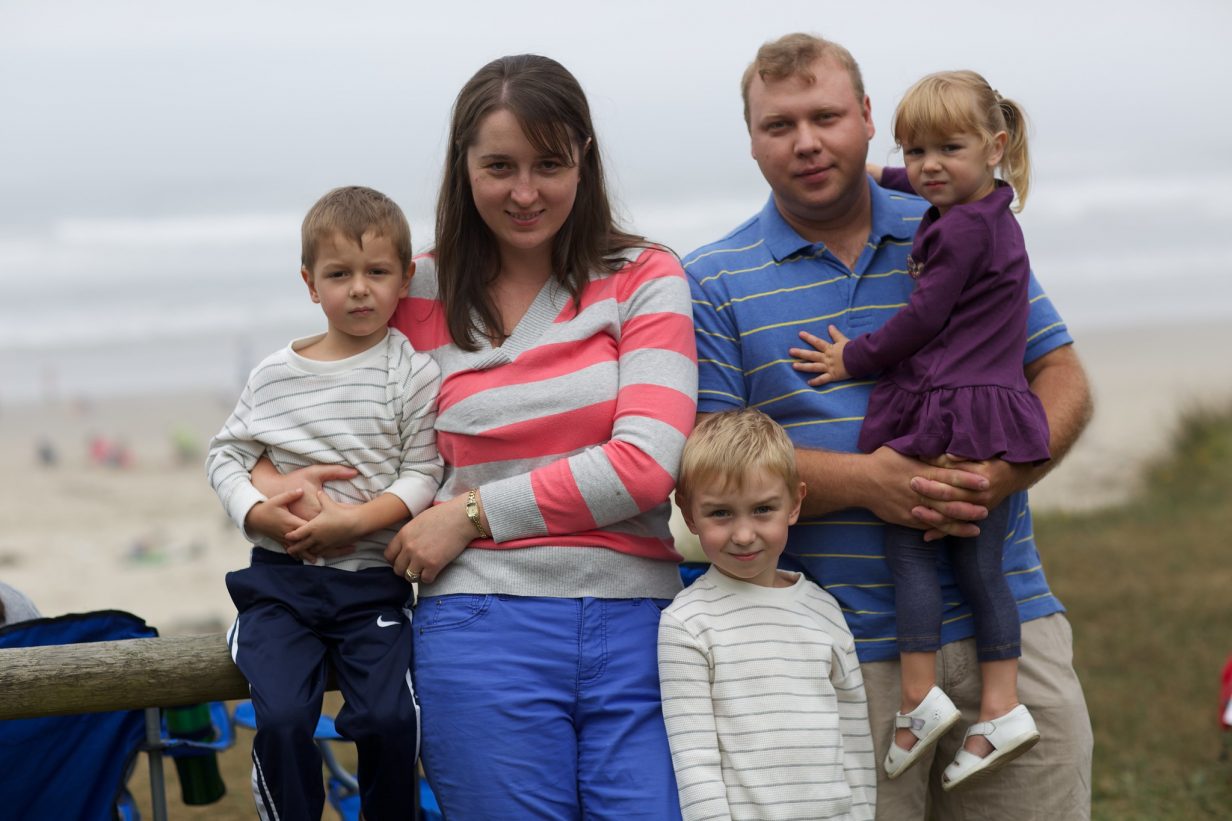
1.1 Gender of Nouns
In this module, you will become familiar with the common endings for masculine and feminine nouns, including Ukrainian names. You will also learn the Ukrainian equivalents for the pronouns “he,” “she” and “my” and how to use them in simple present-tense sentences about identity.
Завдання 1
Read the captions under the pictures and note what endings are typical for masculine nouns that refer to men and what endings are typical for feminine nouns that refer to women. Note also the Ukrainian words for “he” and “she.”
Це Олекса́ндр У́сик. Олекса́ндр – боксе́р. Він украї́нець. |
Це Мі́ла Ку́ніс. Мі́ла – акто́рка. Вона́ америка́нка і украї́нка. |
Complete the sentences below using the context provided to fill in the correct name or profession.
Завдання 2
Listen to the sentences below and choose the famous person to whom each sentence refers.
Цікаво!
Some male Ukrainian names end in –а, –я or –о. These proper nouns are still masculine despite these exceptional endings.
Remember these common ones:
Мико́ла (‘Nicholas’)
Лука́ (‘Luke’)
Ілля́ (‘Elijah’)
Миха́йло (‘Michael’)
Павло́ (‘Paul’)
Петро́ (‘Peter’)
Дани́ло (‘Daniel’)
Дмитро́
Завдання 3
Listen to the questions below and choose the name of the person to whom the question refers based on the gender of the pronoun that is used.
Завдання 4
Read Danylo’s introductions of himself and two of his family members. Note the feminine and masculine words for “my.”
Приві́т! Я Дани́ло.
Я студе́нт.Це моя́ сестра́ Окса́на.
Вона́ студе́нтка.Це мій брат Наза́р.
Він архіте́ктор.
 |
 |
 |
Danylo introduces three additional family members in the sentences below. Fill in the blanks with the correct nouns and pronouns to complete the sentences.
Цікаво!
A few common masculine family words in Ukrainian end in –о rather than a consonant or –ь (soft sign). Remember these three:
ба́тько (‘father’)
та́то (‘dad’)
дя́дько (‘uncle’)
Завдання 5
Complete the sentences below by using the grammatical context to choose the correct words from the bank.
Цікаво!
As this module illustrates, endings of nouns and pronouns referring to men and women tend to follow certain regular patterns (with some exceptions). However, nouns that denote people or animals without specifying their gender still have grammatical gender, determined by these nouns’ endings.
Note these four common nouns:
люди́на (‘human being’) – вона́
осо́ба (‘person’) – вона́
дити́на (‘child’) – вона́
твари́на (‘animal’) – вона́
A rare exception from this rule is the noun cобака (‘dog’), which is masculine in Ukrainian.
Thus, one will say:
Моя́ твари́на but Мій соба́ка
Завдання 6
Read the text below and mark ALL of the masculine pronouns and nouns, including names. Then answer the question that follows.
Мовний пазл
Look through the activities you have just completed and choose the correct statements below to summarize what you have learned.
А тепер тест!
Read the text below and fill in each blank with either він, вона, мій, or моя based on context. Then answer the questions that follow.
Images courtesy of SupportPDX, Amakuha, MTV International, Pixabay, Pixabay, and Pixabay.




